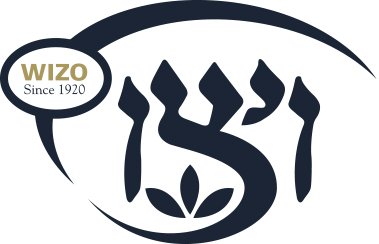The Power and Will to Heal - Makom Balev, Be’ersheva
As an Arab woman, Sara’s is a challenging enough existence without a broken home and violent father. But Sara is strong and has the will to overcome.
Sara* is a 21 years old who lives in Be’ersheva. She lives with her mother and brother and sister in a one-bedroom apartment that she rents herself. There is a disability pension of the National Insurance Institute on a mental health basis. We're not going to make the most of a rehabilitation basket. You meet with a psychiatrist in the mental health unit in Soroka and take sleeping pills.
S.'s nuclear family consists of a couple of divorced parents with ten children together. S is their fourth home. Her parents divorced when she was about 15, but even before the divorce, her father did not attend the house regularly. The father used to consume alcohol and drugs and used to physically violence Sara and her brother. The mother did not work, and the family suffered at the time and even today, from substantial financial difficulties to the point of basic food shortages. Her two younger brothers, in and out of prison, often live with the mother.
S. was required from an early age to help with household chores and care for her younger brothers, and therefore she has always found it difficult to persevere in the school system. In the 10th grade, she dropped out of school definitively after her father beat her in front of her classmates. When she was about 16 years old, her partner was killed in an accident and her mental state, which was already serious, began to deteriorate. During that time, she began her acquaintance with the mental health system against the background of recurrent self-harm. At the age of 17, she was brokered into the Adi Arab Space Centre (which previously operated the Heart Program) against the background of loitering, exploitation by men in an indiscriminate manner, and disconnection from frames. About two and a half years ago, when she reached the age of 18, the heart space opened separately from the Adi Center and S began a therapeutic process at the centre.
Although S. has a large family, it does not serve as a support system. Certain behaviours and even clothing are unacceptable in Arab society and even dangerous for it, so it seems that she lives in a seam between closeness and belonging to family and hiding and leading an independent life (for example, by renting an apartment). Besides, there are no additional support systems in its vicinity.
Since getting to know Sara, it has been evident that she is making great efforts to move forward in her life towards growth and change. Her work with her has so far focused on exercising rights and improving her mental state, and in both parameters there has been improvement. In the future, her treatment plan will continue to focus on her mental state and stabilise her life on the economic and couple level, and the possibility of exhausting a rehabilitation basket will be examined alongside the exhaustion of additional rights. Sara Collaborates and the relationship with her is based on trust and sharing. Her motivation is usually high, in more turbulent times the ability to enlist for a damaged goal, but usually with assistance she manages to collect herself and re-adjust.
As the report put it, this is a young woman with a high motivation for change in her life and with internal forces in order to achieve the improvement she would like. At the same time, The Support Factors of Delim and Her Life are filled with increasing storms. As part of the goals she set for herself in the treatment program, S. would like to create some kind of balance and stability in her life, which would allow her to move forward without the forces that pull her back.
Currently, it is facing a high debt to Partner, which has reached execution. I believe that eliminating the debt will ease her financial pursuit and give her breathing room so that she can focus on other therapeutic goals.

